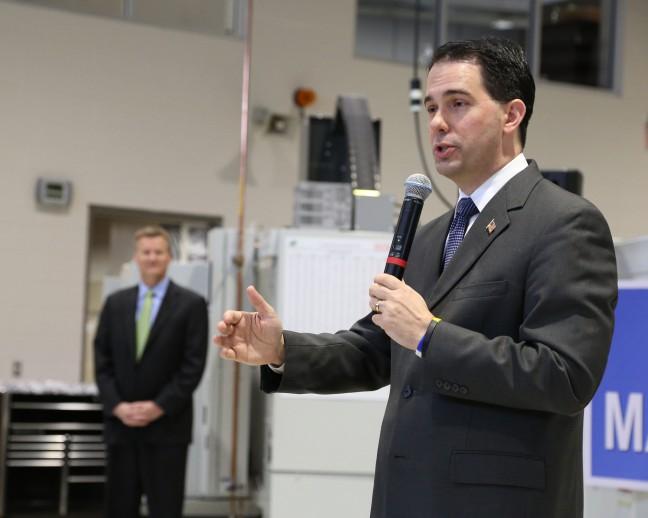Earlier this week Gov. Scott Walker announced a multi-faceted plan to make higher education more affordable, a step one expert said was positive, but “minimal.”
Noel Radomski, director of Wisconsin Center for the Advancement of Postsecondary Education, said this is likely because it is a non-budget year.
“The package that was discussed … it’s minimal,” he said. “And that is usually the case because it’s the biennial year budget not during non-budget years that you can really move the dial on college affordability.”
The affordability package includes six bills focused on lowering college costs and student debt and increasing student loan awareness.
Among the proposals are programs to reduce all student loan interest, increase grants for technical schools and increase internships, according to a statement from Walker.
$250 million cut to UW System remains as Assembly passes state budget
Another one of his programs provides emergency grants to students facing crises. Walker said without aid, these unforeseen circumstances could result in students dropping out of school.
“For some students, that emergency car repair is the difference between finishing their education or not,” Walker said. “That’s why one of our proposals creates a grant program aimed at helping those students at UW System colleges and technical college to stay in school when they face these unexpected financial hardships.”
In another bill, institutions of higher education would be required to provide students and families with financial information, according to the statement. The goal of this legislation is to reduce the amount of loans students take out.
One of the bills introduced will provide $5,000 more in financial aid for students at technical colleges, but won’t increase financial aid for students in the UW System,
Sara Goldrick-Rab, a UW educational policy studies professor, said Walker focused more on supporting two year technical and community colleges, rather than four year institutions.
Walker has a history of showing more support for technical schools, Radomski said. He said this could be because vocational degrees are aimed at workforce development and seem to have a more direct effect on business.
Walker considers investing in education for sake of job creation
One thing Wisconsin needs to do is coordinate between technical schools and public universities so institutions can work together instead of compete for funding, Goldrick-Rab said.
Radomski said Walker’s internship program is “definitely helpful,” but the bill doesn’t provide funding. He said for the program to be effective there needs to be more funding.
The biggest way the state could improve its higher education system is to either increase funding or reduce cuts, Radomski said.
In a statement, UW System President Ray Cross said he supported Walker’s steps to make college more affordable.
“We applaud the leadership of Governor Walker, Representatives Macco and Murphy and Senators Harsdorf and Marklein for advancing these proposals,” Cross said. “The UW System is a dedicated partner with these leaders and the many others working to help build a talent pipeline that fuels individual opportunity and Wisconsin’s growth.”
Walker also pointed to the tuition freeze as something that has been helpful for college students across the state. He said students have saved an average of $6,311 each.
Walker said he is dedicated to finding solutions to make college more affordable in Wisconsin.
“We want to continue working together to make higher education more accessible and more affordable for Wisconsin students and families,” Walker said. “Moving forward, we are focused on helping students to afford the higher education path that best suits their career goals, whether through a training program, technical college or a four-year program.”
Correction: This post has been updated to more accurately reflect Sara Goldrick-Rab’s views.














